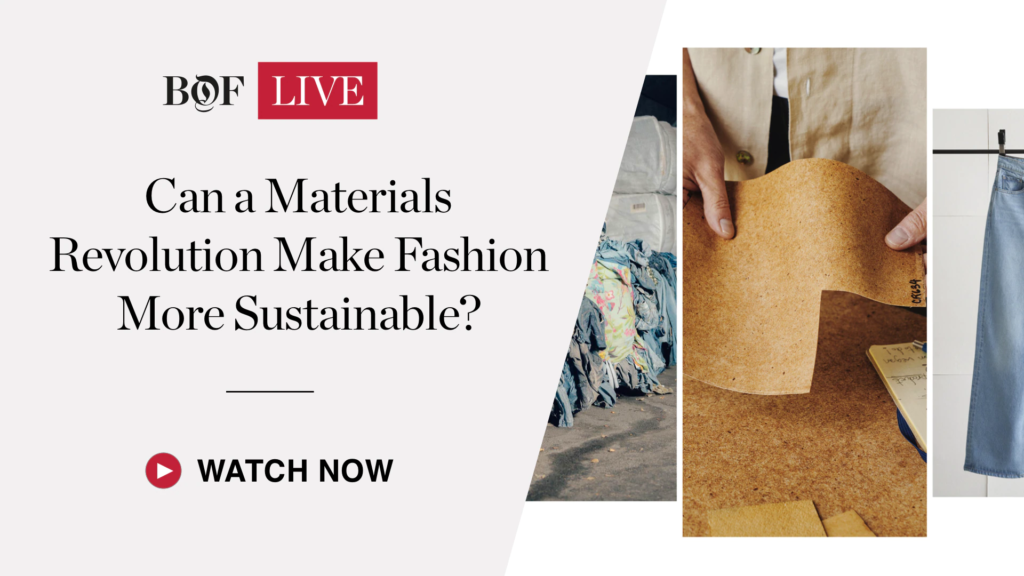Shared from www.businessoffashion.com.
This #BoFLIVE event was based on the ‘Fashion’s Race for New Materials,’ case study. Click here to read our full analysis.
In a bid to bake sustainability into their business models, brands are placing bets on a variety of promising new materials, such as mushroom-based leather, recycled textiles and regeneratively-farmed cotton. Even Hermès, a luxury brand steeped in heritage and traditional craftsmanship, began experimenting with Californian mushroom-materials start-up MycoWorks in 2021, a signal of coming mainstream change in the industry.
Change is sorely needed: Copenhagen-based sustainability advocacy group The Global Fashion Agenda and consultancy McKinsey & Company say the fashion industry contributes roughly 4 percent of total global greenhouse gas emissions, and that raw material production alone accounts for 38 percent of the fashion industry’s total emissions.
“If we can really seize on creating materials with a better environmental impact, a smaller footprint, and scale them and adopt them in a way that really moves the needle for the industry, the potential for a better impact is huge,” said BoF’s Rachel Deeley.
On the heels of her recent case study “Fashion’s Race for New Materials,” Deeley sat down with BoF’s London editor Sarah Kent and a panel of experts, including Elaine Siu, chief innovation officer at the Materials Innovation Initiative; Tanyaradzwa Sahanga, product creation, sustainability and commerce consultant; and Claire Bergkamp, chief operating officer at nonprofit Textile Exchange to discuss the need for swift progress in the industry and barriers to widespread adoption.
To participate in #BoFLive, BoF’s digital events series offering insight, advice and inspiration, visit our calendar where you can find details of upcoming digital events.
Images and Article from www.businessoffashion.com

